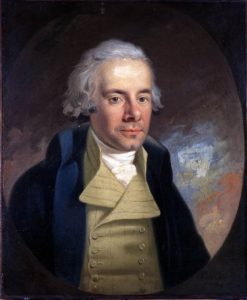Rear View
No slaves! No gods! No masters!
Anti-Slavery International, an organisation founded by abolitionist William Wilberforce in 1839, state on their website ‘Slavery did not end with abolition in the 19th century. Instead, it changed its forms and continues to harm people in every country in the world’. Indeed. But this organisation’s understanding of slavery is very different to ours, as a recent interview reveals. At one point Jakub Sobik, an ASI member, says: ‘Here in the UK, there are estimates of as many as 138,000 people who are trapped in modern slavery’ (dw.com, 25 March). History provides an explanation. Tory MP William Wilberforce was a member of the owning class opposed to chattel slavery as it was considered an outmoded and inefficient method of labour exploitation. He, like ASI, did not oppose wage slavery. He also supported child labour and had small children in his employ, opposed Trade Unionism, and was co-founder of The Society for the Suppression of Vice and Encouragement of Religion. He preached to the poor that: ‘their more lowly path has been allotted to them by the hand of God; that it is their part faithfully to discharge its duties and contentedly to bear its inconveniences; that the present state of things is very short; that the objects, about which worldly men conflict so eagerly, are not worth the contest’ (A Practical View of the Prevailing Religious System of Professed Christians). Information concerning their founder on antislavery.org is scant and misleading, e.g. ‘William Wilberforce, in his day, achieved much and was widely praised’. Quelle surprise.

World without wages
Selma James who founded the Wages for Housework campaign in 1972, is similarly blinkered, alas. Before pursuing this single-issue reform, Selma James had identified herself as a Trotskyist (the young vanguardist joined the Johnson–Forest Tendency at the age of 15), a black nationalist and supporter of Fidel Castro. She was involved with the short-lived but successful from a reformist perspective Campaign Against Racial Discrimination. Some four years after it was founded, the Race Relations Act of 1968 was passed. Ironically, the racist Commonwealth Immigrants Act came into force, under a Labour Government, that very year – such is the topsy-turvey world of reformist politics. Neither her pamphlet Marx and Feminism, based on a talk she gave in 1983, nor a recent interview (the independent.co.uk, 8 March) support her contention that Marx has been useful to the near 50-year-old campaign. Marx called for the abolition of the wages system, not its extension! ‘Wages for Housework’s first campaign was to keep family allowance (as child benefit was called) in women’s hands..’. She also states: ‘The climate emergency clarifies much. The Green New Deal for Europe, of which we are part, proposes a care income for all who do caring work for people and planet – a welcome update on wages for housework.’ And as likely as Wilberforce’s early version of pie in the sky when you die!
‘Apartheid is against the interests of the South African capitalist class.’ (Socialist Standard, April 1969)
The Anti-Apartheid Movement, founded in 1959, continued to operate until 1994 when South Africa held elections, generally seen as ‘free and fair’ and in which all ‘races’ could vote for the first time. Mission accomplished? Hardly, alas. We read today ‘Just 3,500 people – 0.01% of the adult population – own 15% of total wealth in South Africa, according to a new study. And, there has been no decrease in wealth inequality in the 26 years since democracy’ (dailymaverick.co.za, 10 March). The first three Presidents there supported the dictator Mugabe. Mbeki is responsible for the premature deaths of up to 365,000 AIDS victims. King Zuma has his palace and shares responsibility for the Marikana massacre with Ramaphosa. Anti-apartheid activist and Nobel Peace Prize winner Archbishop Desmond Tutu said of the ANC: ‘They stopped the gravy train just long enough to get on themselves.’ He went on to describe the Zuma administration as ‘worse than the apartheid government’ and that he would ‘pray for the downfall of the ANC.’ Racism remains rife in South Africa, the most unequal society in the world – economic apartheid persists for millions. Yet it would be churlish to deny the AAM played a part in bringing about a more inclusive democracy. However, before then, the apartheid system – like chattel slavery – had become a fetter on capitalism’s development.
Revolution not reform
Imagine the real change we could bring about if the energies of those chasing reforms were instead directed to establishing a post-capitalist socialist world.
